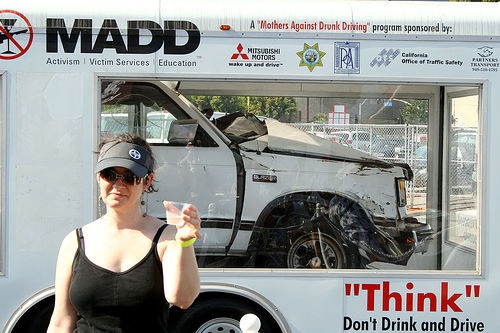On the night of Oct. 12, 2013, a Massachusetts man was driving along Interstate 291 in Springfield with four children when his vehicle flipped over after colliding with another car. According to police, the children, who ranged in age from 1 year old to 10 years old, sustained non-life threatening injuries. The man was arrested and charged with driving under the influence (DUI) of alcohol.

It’s accidents like this one that have caused states across the country in recent years to increase existing penalties for DUI when children are involved. Currently, Washington D.C. and 43 states have enhanced drunk driving penalties for first-time and repeat DUI offenders whose passengers are children under 16.
While the state laws differ as to the severity of the punishment, the point lawmakers have made is that they have zero tolerance for those who put children – as well as other motorists on the road – in harm’s way.
Examples of Enhanced DUI Laws
Some states have chosen to name their enhanced laws after the young victims of drunk drivers, for instance:
Melanie’s Law
In October 2003, Melanie Powell, a 13-year-old girl from Marshfield, Mass., was killed by a repeat DUI offender. Two years later, Massachusetts lawmakers passed a package of anti-drunk driving bills, dubbed “Melanie’s Law.” Under the provisions of the law, drivers are charged with DUI and child endangerment, an offense carrying a maximum penalty of 2.5 years in prison.
The endangerment charge is added when the children in the vehicle are under 14. First-time DUI offenders also lose their driver’s license for one year if convicted of the misdemeanor charge. Repeat offenders have to install an Ignition Interlock Devices (IID) in their vehicle. Drivers blow into this breathalyzer device which prevents a vehicle from starting if it detects alcohol on the driver’s breath.
Leandra’s Law
Leandra Rosado was 11 years old in October 2009 when the car in which she and six other children were riding flipped over. Her friend’s mother, who was driving the car, was charged with driving under the influence. The following month, New York lawmakers made it a felony to drive drunk with passengers under 16 years old. First-time offenders charged with DUI endangerment whose blood alcohol content was .08 percent or more face a maximum penalty of four years in prison.
Tougher Laws vs. Civil Rights
While DUI defense attorneys support measures that protect children, they pause when those same measures have the potential to violate an individual’s civil rights. For instance, mandatory penalties takes away a defense attorney’s ability to negotiate with the prosecutor for reduced charges. Also, some defendants who are arrested have no prior criminal history or poor driving record, but have a problem with alcohol. So, DUI attorneys contend that rather than give drivers the help they need with their alcoholism, they are thrown in prison for two years or more.
Some attorneys are able to negotiate with the prosecutors to drop the more serious child endangerment charge and file a misdemeanor DUI instead. But this all depends on whether the state law gives the prosecutor’s the leeway to do so.
Drunk driving remains a problem and while politicians are taking steps to remedy the problem, attorneys are hoping that it’s not at the expense of drivers’ constitutional rights.
Valerie Stout Cyrus is a freelance writer who frequently researches DUI laws. She has found that the law offices of Steven E. Kellis, http://www.kellislaw.com/, are experienced in successfully representing individuals in bothe evidentiary hearings and DUI trials.

